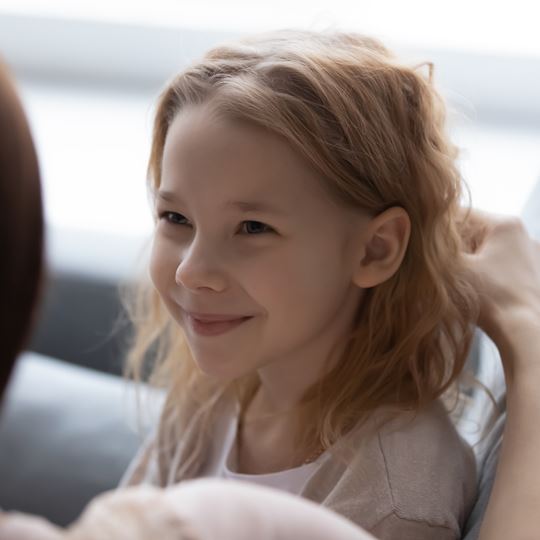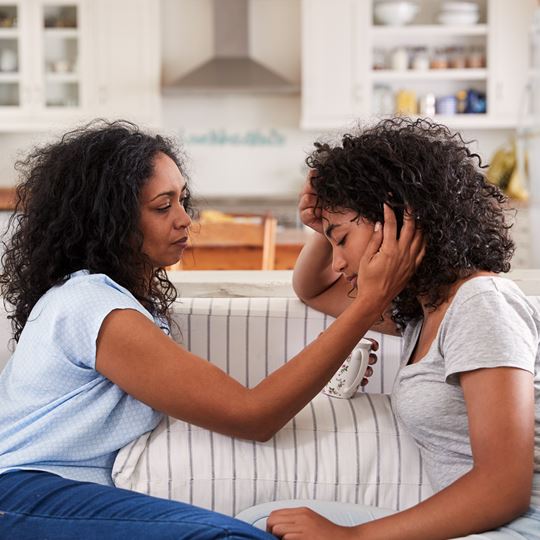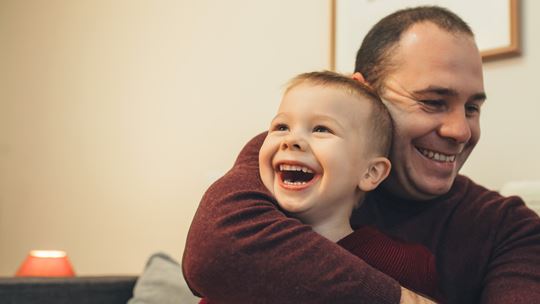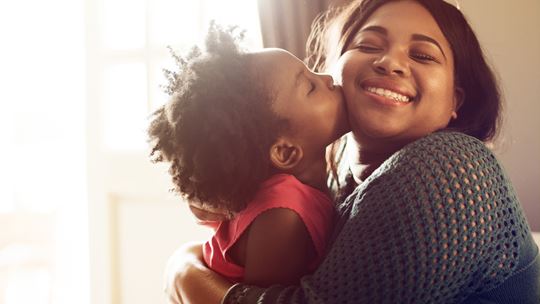How to Manage Emotions when your Foster Child moves on
A foster child leaving your care is a moment that many foster parents worry about. Yet it is an inevitable and important part of fostering. We’ve put together some guidance on how to cope when a foster child leaves your home.

There are many different stages that a foster family will go through, but one that many find difficult is when a foster child leaves their family.
Saying goodbye to a child you have been caring for, regardless of the type of placement or length of time, can be an emotional and sensitive experience.
While it is important to remain focused on the best interests of the child, and for the transition to centre around their needs, it is also crucial to take into account the effects on the foster family, their emotions and the impact of this adjustment.
Managing a placement end
At Fosterplus, we are dedicated to supporting you and your family throughout all stages of your fostering career. Our team will offer full guidance and support to help you with the transition of a child leaving your care, full training on managing the ending of a placement, and you’ll also have direct phone line support all hours of the day, every day of the year, so you’ll never be without support.
Our guidance below will help you with managing emotions during that difficult time of a child moving on.
Prepare for saying goodbye
A placement ending will usually be planned in advance so that everyone can prepare fully, and your foster child or siblings can be supported during the transition. Once you are aware of your placement coming to an end, it is important to talk openly and honestly with the child, on a level that they can understand. Making them aware that you care about them, how much you have enjoyed getting to know them, and that the move is through no fault of their own are all important approaches for reassurance and help to provide closure.
You should help them to understand why they are leaving your home – for example, whether this is to live with another foster family or to return home – and keep your language positive and focused on what is best for them. It will help you to manage your own emotions by keeping a clear focus on their needs and communicating appropriately with them what is happening.
Helping your foster child or young person to pack their belongings can be useful and productive, and help you all prepare for the process. This can also help if they have any special items, gifts from yourself, or photographs and memory books, as it gives you a chance to reflect on happy memories as well as helping you feel connected.
If caring for a teenager who is moving into independence, they will require additional, practical support. It is often felt as a positive step for foster parents, who can see the direct impact they are having in supporting their foster child with learning new skills, and knowing the difference you have made will enable them to have a positive adult life.
Make lasting memories
As the end of your placement approaches, it will really help you all to spend as much time as you can together as a family. This may also involve other family members or friends your foster child has met while living with you. It will help the transition feel positive, provide some wonderful lasting memories, and give everyone a chance to say goodbye.
Reflect on happy times
There are many things you can do in order to create a lasting, positive memory for yourself as a foster parent and also the child. You could create a photo album or scrapbook together to document the memories you have shared during their time living with you. This is a lovely and sentimental activity that you can take part in as a family and provides something for the child to take away with them. Giving the child or young person a special book, and leaving a personal message inside, can be a lovely thoughtful present to give them.
Another idea is to take a fun family photo of you all, which you can both keep copies of. Any thoughtful gift you can provide to the child, no matter how small, will be a reminder of their time with you and the special bond you have. These activities will enable you to reflect on happy times and serve as a reminder of everything you have done and the difference you have made for the child you have been caring for.
Spend time with other foster families
The one group of people who will really understand how you are feeling are other foster parents. It can be greatly beneficial to spend time with other foster families, such as through support groups and activities held within your fostering agency, so you can share your experience, ask advice and have support from someone who has experienced this same stage during their fostering journey.

Support your birth children
In addition to the foster child, you may also have birth children at home who will need supporting with the transition. If they are very young, they may not be old enough to understand why a child or young person is leaving so it is crucial to be sensitive to this, welcome any emotions that emerge, and use age appropriate tools to support them, such as relevant children’s books.
Be kind to yourself
A child leaving your care is an emotional time for everyone, and it is fair to recognise this and acknowledge how you are feeling. You are likely to go through different emotions as time passes, but make sure that you remember it is ok to feel the way you are feeling.
To help with managing your emotions at this time, firstly allow yourself time to grieve. Be gentle and kind to yourself, and try to make time to do something for yourself such as:
- Immersing yourself in a hobby you enjoy.
- Enjoying some mindful activities like art or journaling.
- Getting active like going for a walk.
- Doing some self-care such as pampering or cooking your favourite meal.
Focus on your achievements
To help you keep focused during the transition, it is good to reflect on the difference you have made and achievements you can celebrate from throughout the foster placement. There will be many positive aspects to keep your attention on to help you feel positive about the move rather than upset or nervous. Remembering why you became a foster parent – likely, to make a difference to children – and knowing that you have done that more than you realise, and even more so now in preparing them to move on.
Seek support
If you are really struggling with the ending of a foster placement, then it is important to know that all your feelings are valid, but also that you do not have to face the transition alone. Your supervising social worker is there to support you, as well as wider members of the Fosterplus team, so always reach out to them if you need help, advice, or a friendly chat to help get you through. Your social worker is there to support and guide you with all aspects of saying goodbye to a foster child, and will help you to feel fully prepared for this stage.
At Fosterplus, we provide extensive resources for supporting our foster parents and children. There are online resources, useful guides, training courses and video tutorials – as well as a dedicated team of professionals, and 24-hour helpline for any day you need to get in touch.
Keep in touch
If it is appropriate, agree to keep in touch and make sure the child or young person knows how to contact you. This can help ease the finality of the placement ending, allows you all to continue to feel connected, and can provide an extra level of support to the young person as they take their next step. Make sure you discuss this aspect with the child’s social worker before exchanging details so everything is arranged properly and all are in agreement with any plans.
Talk to friends and family
Whilst it is important to be mindful of safeguarding and protecting a child’s privacy, talking to your support network of close friends and family can help you to process your feelings about a child leaving your care. Feeling supported, and that people are there for you while you are experiencing difficult emotions, will provide a great deal of comfort and help you to cope better.
There are many different reasons that a foster child will leave your care, such as adoption, returning to their family, transferring to another foster home, or moving into independence. Whatever the reason, or however long they have stayed with you, it will always be an important milestone in a child and foster parent’s life.
One thing you can be sure of, as a foster parent, is that the care you have provided, and the difference you have made to each child, will stay with them forever.
If you're interested in fostering, and would like to know more about becoming a foster parent, get in touch with us today.
Please make sure you read our terms and conditions because you're agreeing to them by submitting an enquiry. It's also worth reading our privacy policy and cookies policy so you understand how we collect and use your personal data. This site is protected by reCAPTCHA and the Google Privacy Policy and Terms of Service apply.
Can't find what you're looking for?
By phone
One of our team is available to talk to you over the phone to answer any of your fostering queries.
Enquire online
You can get in touch by filling out our online enquiry form with any queries that you may have.
Your local team
Find contact details for your local office team. We’re always happy for you to pop-in and chat.





